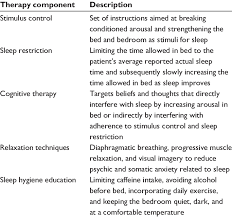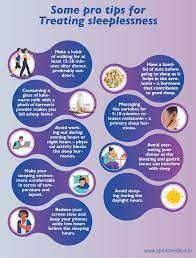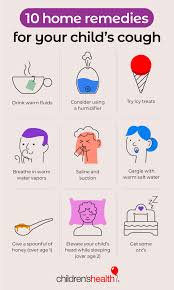The Benefits of Cognitive Behavioral Therapy for Insomnia
Insomnia can significantly impact your quality of life, affecting your mood, productivity, and overall well-being. If you’re struggling with insomnia and searching for effective treatment options near you, consider cognitive behavioral therapy (CBT) for insomnia.
CBT for insomnia is a structured program that helps individuals identify and replace thoughts and behaviors that cause or worsen sleep problems with habits that promote sound sleep. Unlike medication, CBT targets the underlying causes of insomnia and equips you with long-lasting strategies to improve your sleep patterns.
Key Components of CBT for Insomnia:
- Sleep Hygiene Education: Learn about healthy sleep habits and lifestyle changes that can enhance your sleep quality.
- Cognitive Restructuring: Identify and challenge negative thoughts and beliefs about sleep to promote a more positive mindset.
- Stimulus Control: Establish a strong association between the bed and sleep by limiting activities in bed to promote better sleep efficiency.
- Sleep Restriction: Regulate your time in bed to match your actual sleep duration, improving the efficiency of your sleep.
- Relaxation Techniques: Practice relaxation exercises to reduce stress and anxiety that may interfere with your ability to fall asleep.
Finding CBT for Insomnia Near You
If you’re interested in exploring CBT for insomnia as a treatment option, it’s essential to find a qualified provider near you. Search online directories, contact local mental health clinics or reach out to healthcare professionals for recommendations. Look for therapists or clinics specializing in cognitive behavioral therapy who have experience in treating insomnia.
Remember that consistency is key when undergoing CBT for insomnia. With dedication and guidance from a trained professional, you can develop healthier sleep habits and overcome the challenges of insomnia effectively.
Take the first step towards improving your sleep quality by considering cognitive behavioral therapy for insomnia near you. Restful nights await!
Common Questions About Cognitive Behavioral Therapy for Insomnia: Duration, Candidates, Effectiveness, and Access Near You
- How long does it take for cognitive behavioral therapy to work for insomnia?
- Who is a candidate for cognitive behavioral therapy for insomnia?
- Is cognitive behavioral therapy effective for insomnia?
- How do you get CBT for insomnia?
How long does it take for cognitive behavioral therapy to work for insomnia?
When considering cognitive behavioral therapy for insomnia near you, a common question that arises is, “How long does it take for cognitive behavioral therapy to work for insomnia?” The effectiveness of CBT for insomnia can vary from person to person, but many individuals begin to see improvements in their sleep patterns within a few weeks of starting therapy. Generally, most people experience noticeable changes in their sleep quality and duration after completing 4 to 8 sessions of CBT. Consistency in attending sessions, actively participating in therapy exercises, and implementing recommended strategies outside of therapy sessions play a crucial role in the success and timeliness of achieving better sleep through cognitive behavioral therapy.
Who is a candidate for cognitive behavioral therapy for insomnia?
Individuals who are struggling with persistent sleep difficulties and are seeking effective, non-pharmacological treatment options may be suitable candidates for cognitive behavioral therapy for insomnia (CBT-I). Candidates for CBT-I typically experience symptoms of insomnia, such as difficulty falling asleep, staying asleep, or waking up too early and feeling unrefreshed. Additionally, those who have tried other methods to improve their sleep with limited success or wish to address the root causes of their insomnia may benefit from CBT-I. It is important for potential candidates to consult with a healthcare provider or a qualified therapist specializing in CBT-I to determine if this evidence-based approach is the right fit for their individual needs and circumstances.
Is cognitive behavioral therapy effective for insomnia?
Many individuals wonder about the effectiveness of cognitive behavioral therapy for insomnia when seeking treatment options nearby. Cognitive behavioral therapy (CBT) has been widely recognized as a highly effective approach for managing and overcoming insomnia. Research has shown that CBT targets the root causes of sleep disturbances by addressing negative thought patterns, behaviors, and environmental factors that contribute to insomnia. By learning new strategies and techniques through CBT, individuals can improve their sleep quality and establish healthy sleep habits. If you are considering cognitive behavioral therapy for insomnia near you, rest assured that it is a proven and beneficial treatment option that can help you achieve restful nights and better overall well-being.
How do you get CBT for insomnia?
To access cognitive behavioral therapy (CBT) for insomnia near you, the first step is to consult with a healthcare provider or mental health professional. They can assess your sleep patterns, discuss your symptoms, and determine if CBT for insomnia is a suitable treatment option for you. Your provider may refer you to a therapist or clinic specializing in CBT for insomnia in your local area. Additionally, you can search online directories, contact mental health clinics, or inquire with healthcare professionals for recommendations on where to receive CBT for insomnia near you. By taking proactive steps to seek out qualified providers and resources, you can start your journey towards better sleep and improved well-being through CBT for insomnia.



